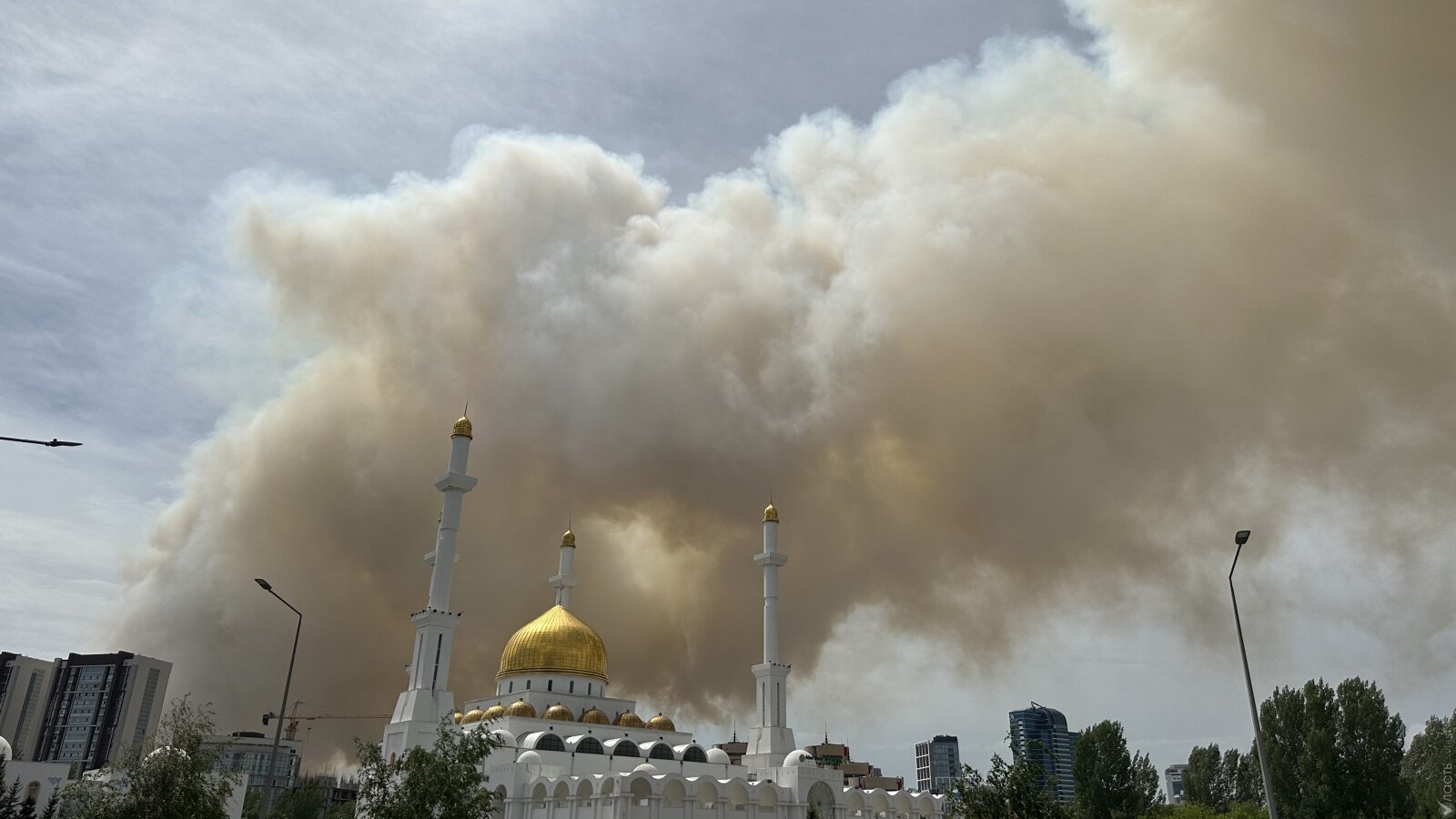Speaking at the second meeting of the National Kurultai, an institutional consultative body established last year, President Kassym-Jomart Tokayev said that he instructed the publication of a seven-volume book on Kazakhstan’s history and identity, in an effort to improve the historical self-consciousness of the nation.
Tokayev has used the National Kurultai platform to voice the country’s ideological principles. At the June 17 meeting he introduced the concept of “responsible citizen”, urging Kazakhstanis to hold high moral standards for their country and families. Tokayev also noted that “responsible citizen” and "Fair Kazakhstan" (an idea he put forward when he became president in 2019) are two interrelated concepts, “unshakable pillars of our country”.
A fire broke out in the outskirts of Astana on June 19 and a thick smoke cloud engulfed the capital. Emergency workers contained the fire, but said that to extinguish it completely they would need more than a week. On June 8, a forest fire wiped out dozens of thousands of hectares of woods in the northern Abai region. Fires have caused devastation across the country in recent weeks.
At a meeting of the Supreme Council for Reforms on June 22, Tokayev urged the government to resolve “immediately” the problem of understaffing at heat and power facilities across the country. Breakdowns at power plants and heating networks have plagued Kazakhstan in the past few months.
Kazakhstan, Kyrgyzstan, and Russia will exchange personal data of citizens and residents, media reported on June 21, after Kyrgyz President Sadyr Japarov signed a law to ratify the agreement among the three countries. Earlier in June, three Russian activists were detained in Bishkek.
A court in Astana sentenced Arystanbek Mukhamediuly to eight years in prison for embezzlement of budget funds. Mukhamediuly served as minister of culture for five years until June 2019, when he was appointed director of the National Museum, a post he kept until May last year.
State-owned oil and gas company Kazmunaigas signed a number of agreements for future oil shipments abroad. On June 20, during the official visit of German President Frank-Walter Steinmeier, Kazmunaigas agreed to send at least 100,000 tons of oil to Germany’s Schwedt refinery, operated by Rosneft Deutschland. On June 22, Kazmunaigas’ CEO Magzum Mirzagaliyev signed a memorandum with Rovshan Najaf, president of Azerbaijan’s state-owned oil and gas company SOCAR, on the transit of Kazakh oil through Azeri territory. In recent months, Kazakhstan has accelerated its attempts to find new routes to ship its oil to its western customers.
A working group jointly represented by Kazmunaigas and various ministries and government agencies conducted an internal audit of Kazmunaigas’ subsidiary Ozenmunaigas, operating in the western region of Mangistau. On June 23, the working group said that the audit unveiled several violations in employment and safety practices. Oil workers in Mangistau have repeatedly complained about poor working conditions.
On June 21, a court in the northern city of Semey sentenced a paramedic working at a detention center to one year probation for “failure to help” in her duties during the January events of 2022. Zhandos Zhotabayev, a resident who was detained during the urban unrest, died as a result of torture at the detention center where she worked.
Yerzhan Dyusenov, director of the market development and sales department of state-owned utility company Samruk-Energo, said on June 21 that Kazakhstan is poised to face a shortage of electricity generation capacity of 1.1 GW in 2023 and 800 MW in 2024.
Поддержите журналистику, которой доверяют.








